Two men smiling, eyeing each other as they briefly let their guard down, with no care of what the world around them is thinking, that has almost never been shown in a Bollywood film, notes Aseem Chhabra.
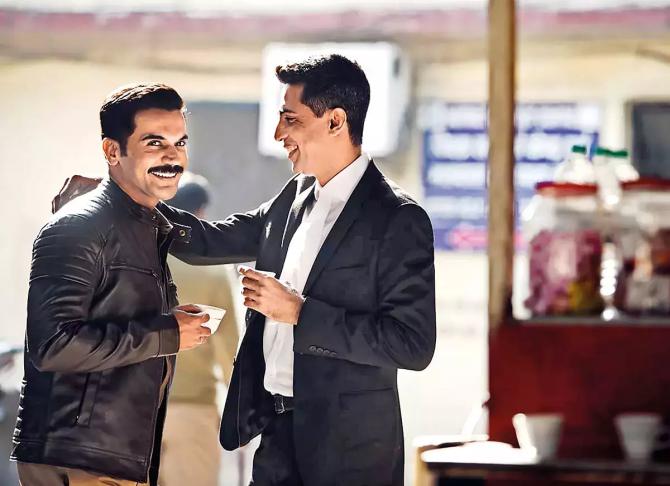
Towards the second half of Director Harshavardhan Kulkarni's film Badhaai Do, Inspector Shardul Thakur (Rajkummar Rao) is standing with a few cops at a street corner, trying to separate protesters from a group of boisterous baratis heading to a gay wedding.
Okay, I know same-sex weddings are not common and legalised in India, but go with image.
Also no spoiler here, but Shardul is a gay man living in a marriage of convenience arrangement with a lesbian woman played by Bhumi Pednekar. This detail is quite clear just by watching the film's trailer.
In the midst of the dancing baratis in colourful costumes, we see a tall man, prancing around, but partially obstructed by other revelers. That tall man turns out to be actor Gulshan Devaiah, playing the role of a gay lawyer, Guru Narayan.
Shardul notices him just as we do. And he is so smitten by this tall man that he asks him to come to him.
As Guru walks over to Shardul in slow-motion, we see the cop's face light up with the sense of desire.
Rao, a heterosexual actor, plays that sequence so perfectly, so convincingly.
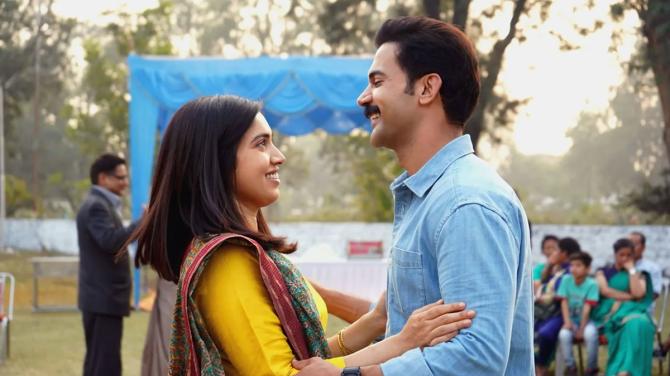
It is a rare moment in Bollywood cinema, given practically every film has a man and a woman looking, observing and then often breaking into a song.
In Bobby, young handsome Rishi Kapoor had just a glance of the equally young and gorgeous Dimple Kapadia when he started to sing Main Shayer To Nahin.
That happens in so many Hindi films, we are used to it.
But two men smiling, eyeing each other as they briefly let their guard down, with no care of what the world around them is thinking, that has almost never been shown in a Bollywood film.
And while Badhaai Do has a lot of humour, some over-the-top in a regular Bollywood film tradition, the director is not forcing a joke here.
He is presenting to us two characters, who are suddenly attracted to each other. And they just happen to be gay men.

Early on in the film, we see Bhumi's Sumi Singh in a lab where she notices another woman, a technician Rimjhim Jhongkey (Chum Darang).
That expression, that look of desire on Sumi's face, is priceless.
And in what may be the first in films anywhere in the world, Sumi opts to get a blood test done just so she can get close to Rimjhim, to be able to talk more with her.
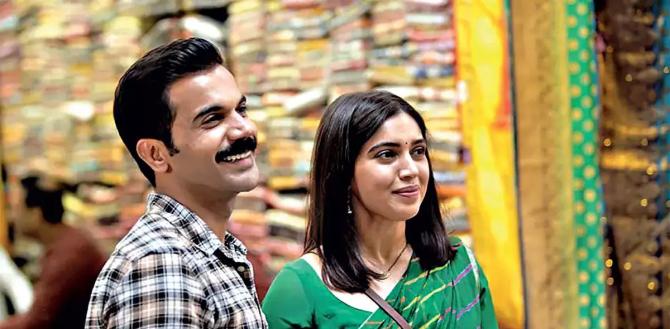
There are rare times when Hindi cinema has shown gay characters who are not fodder for laughter and jokes.
There have been enough cases when gay stereotypes were forced into films just for comic relief.
But as written by Suman Adhikary and Akshat Ghildal, Badhaai Do does not laugh at its protagonists, although sometimes it laughs with them.
Onir's My Brother... Nikhil (2005) and Hansal Mehta's Aligarh (2015) were praised for their realistic portrayals of their gay protagonists. The same can be said about one of the supporting characters in Shakun Batra's Kapoor & Sons (2017), although he is a closeted man whose secret is revealed late into the film.
In all three films, the actors immersed themselves in the characters they play, but Nikhil Kapoor (Sanjay Suri), Prof Ramchandra Siras (Manoj Bajpayee) and Rahul Kapoor (Fawad Khan) are all tormented for different reasons.
Whatever joy they had in their lives was temporary, as now they have bigger demons to fight.
I should mention the meek half-hearted attempts to slap on gay characters to the narratives in films like Ek Ladki Ko Dekha Toh Aisa Laga and Shubh Mangal Zyada Saavdhan. There may be good intentions on the part of the film-makers, but the efforts do not amount to much.
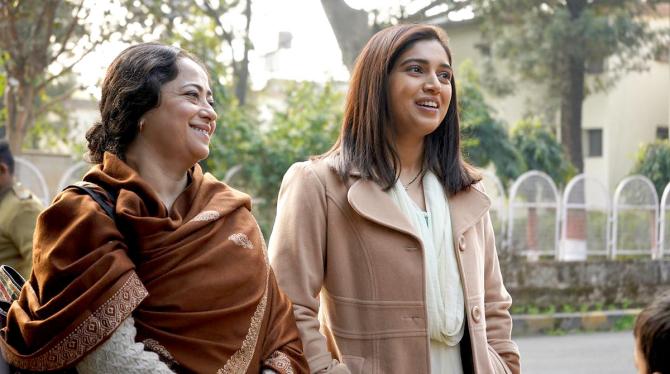
In contrast, Badhaai Do's leads are clear about their sexuality, and the kind of lives they want to lead.
Shardul and Sumi get married only to placate their families, much like the characters in Ang Lee's The Wedding Banquet (1993).
In fact, Badhaai Do seems to be somewhat inspired by Lee's film, especially the resolution in the end.
But Badhaai Do is rooted in the Indian ethos and sensibilities, while it explores the conflicts and complexities of maintaining same-sex relationships in a second-tiered city (the film is set in Dehradun).
There are Bollywood trappings -- the wedding dance sequence and dotty characters in large middle-class families -- that cannot be complete without the casting of actors like Seema Bhargava and Sheeba Chaddha (both in terrific form here), but all of that is forgiven. It is clear that the film-makers want to reach as large an audience as possible.
But where else have you seen an Indian man, a cop, who brings his boyfriend to his honeymoon? Certainly not in Hindi films.
Neither have you seen two gay men, as well as two lesbian women, all well-rounded, believable characters, enjoying their partners's companies, laughing, talking, hanging out in bars and restaurants.
And you definitely have not seen a coming out scene like the one shown towards the end of Badhaai Do.
If this scene and the Pride Parade sequence do not move you to tears, you need to get your heart checked.
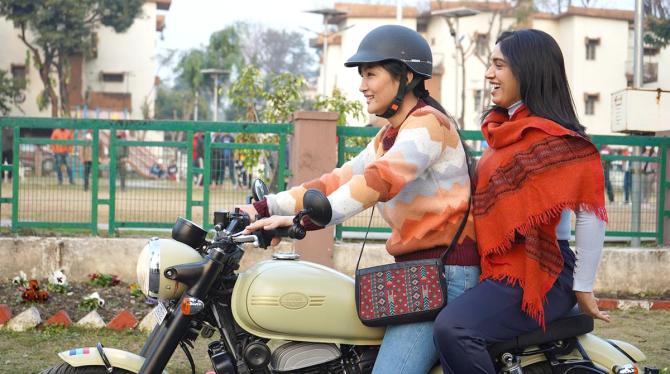
I watched Badhaai Do in a theatre in Noida.
After the film ended, I noticed a couple walking out with their two young sons, one perhaps eight or nine years old, while the other in his early teens.
I do not know if the parents knew much about Badhaai Do before they bought the tickets for the film, but I am glad the two boys had a chance to see a different kind of love story, narrated in the Indian context.
I understand India's queer population is connecting with Badhaai Do.
But the fact that the Noida couple could watch the film in the company of their children, and they did not walk out in the middle of the screening, is an indication that Badhaai Do is one giant step forward for Hindi cinema.
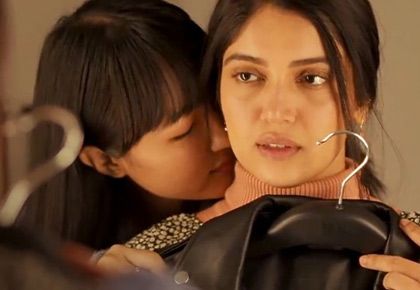


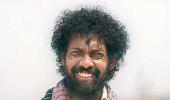





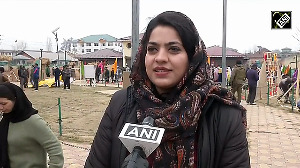
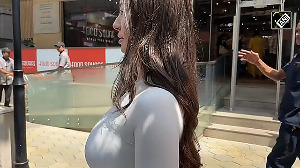
 © 2025
© 2025